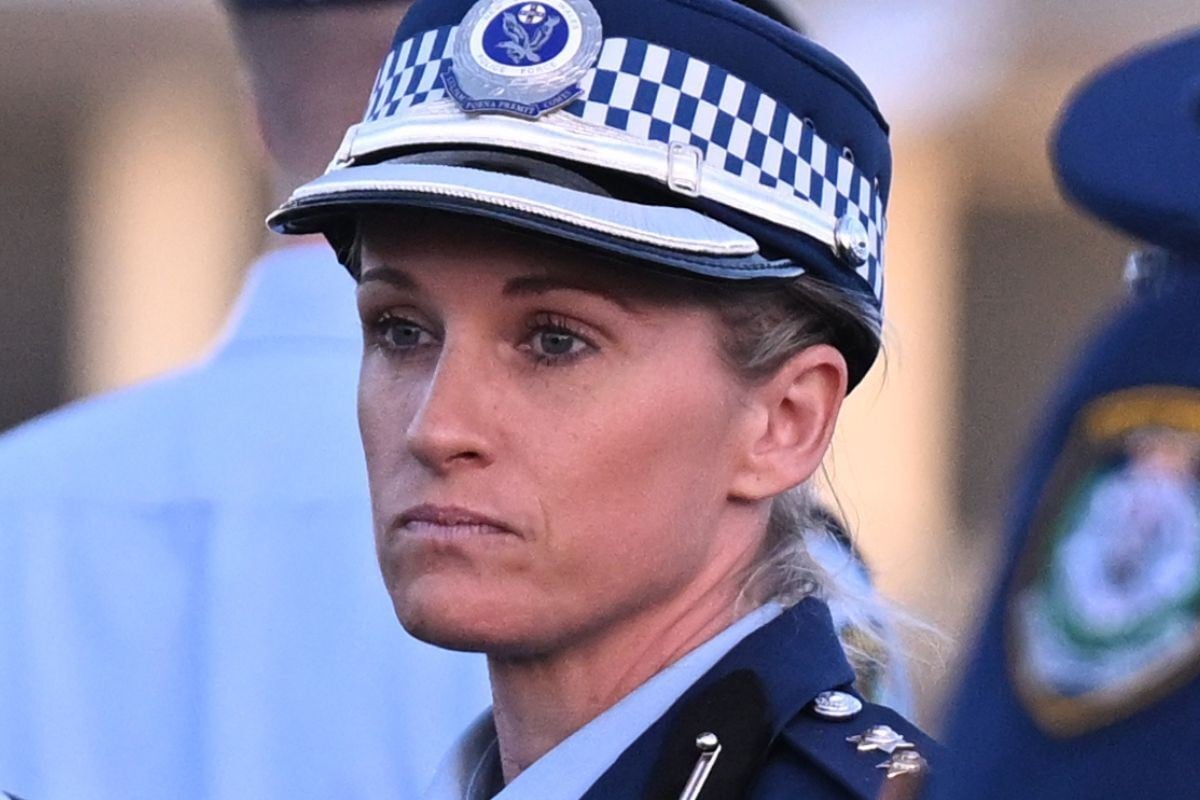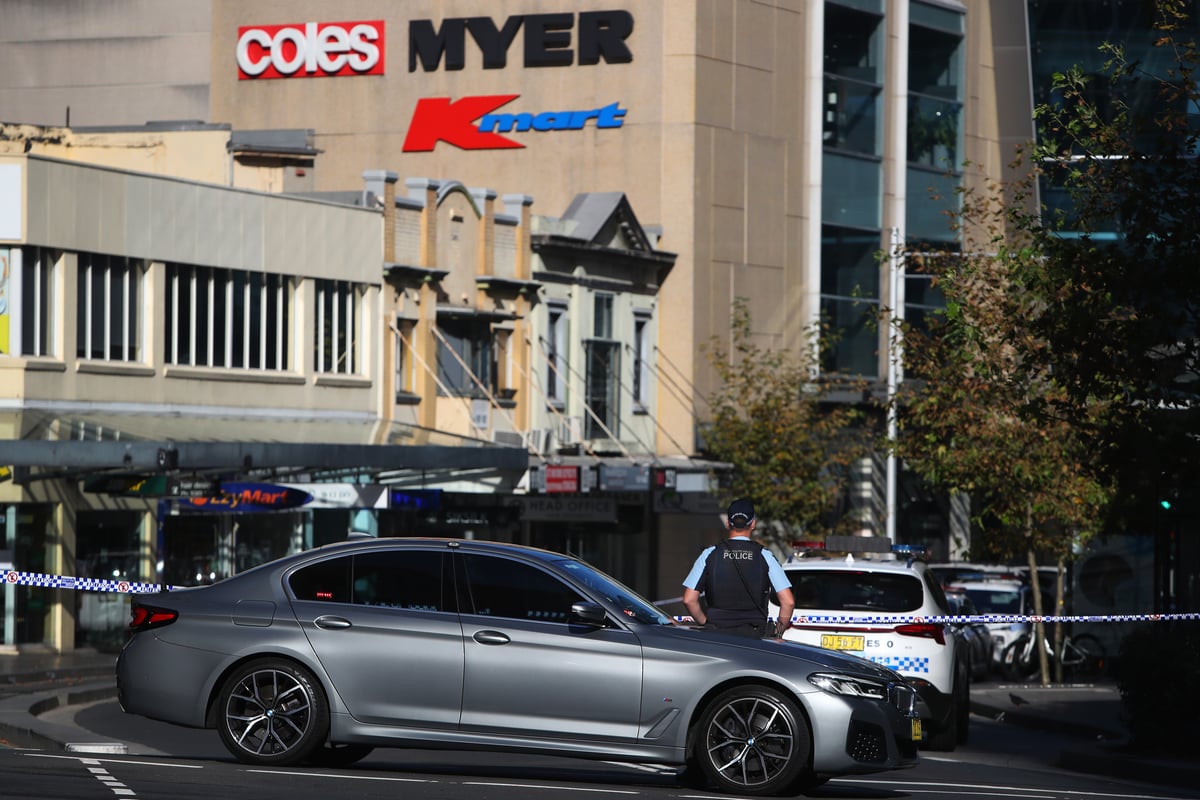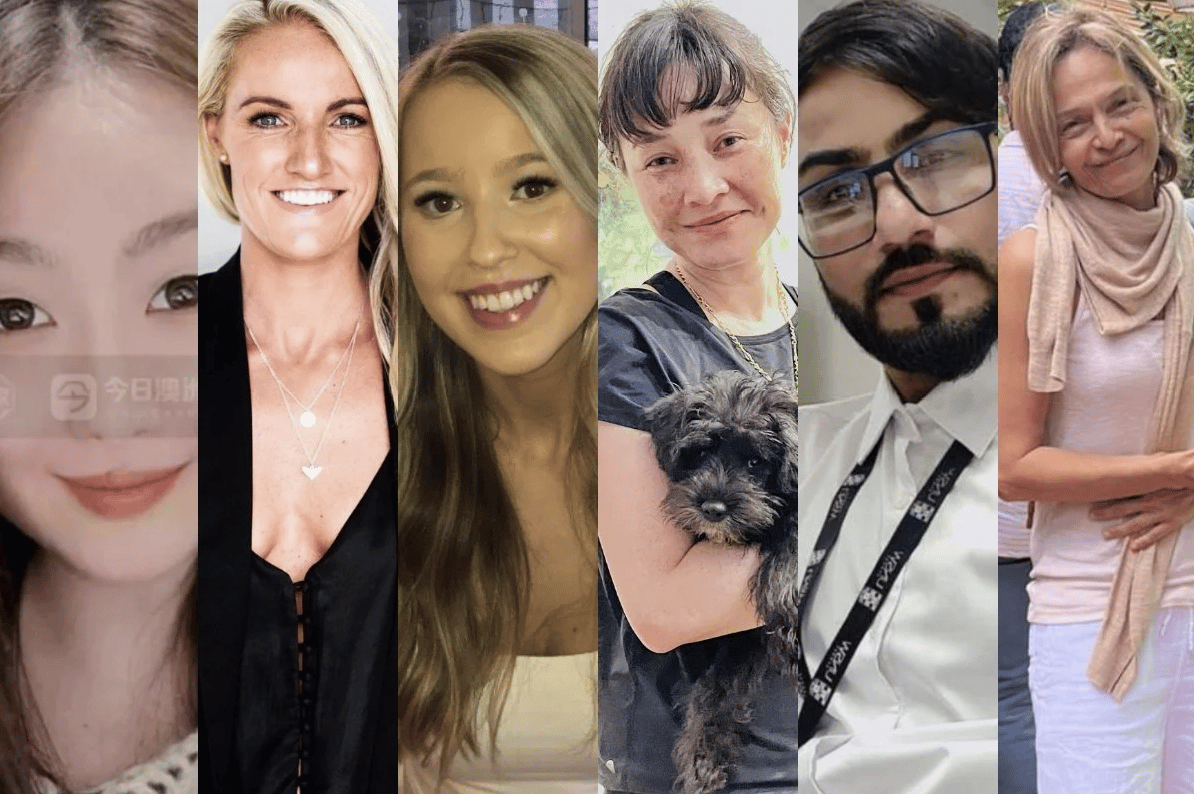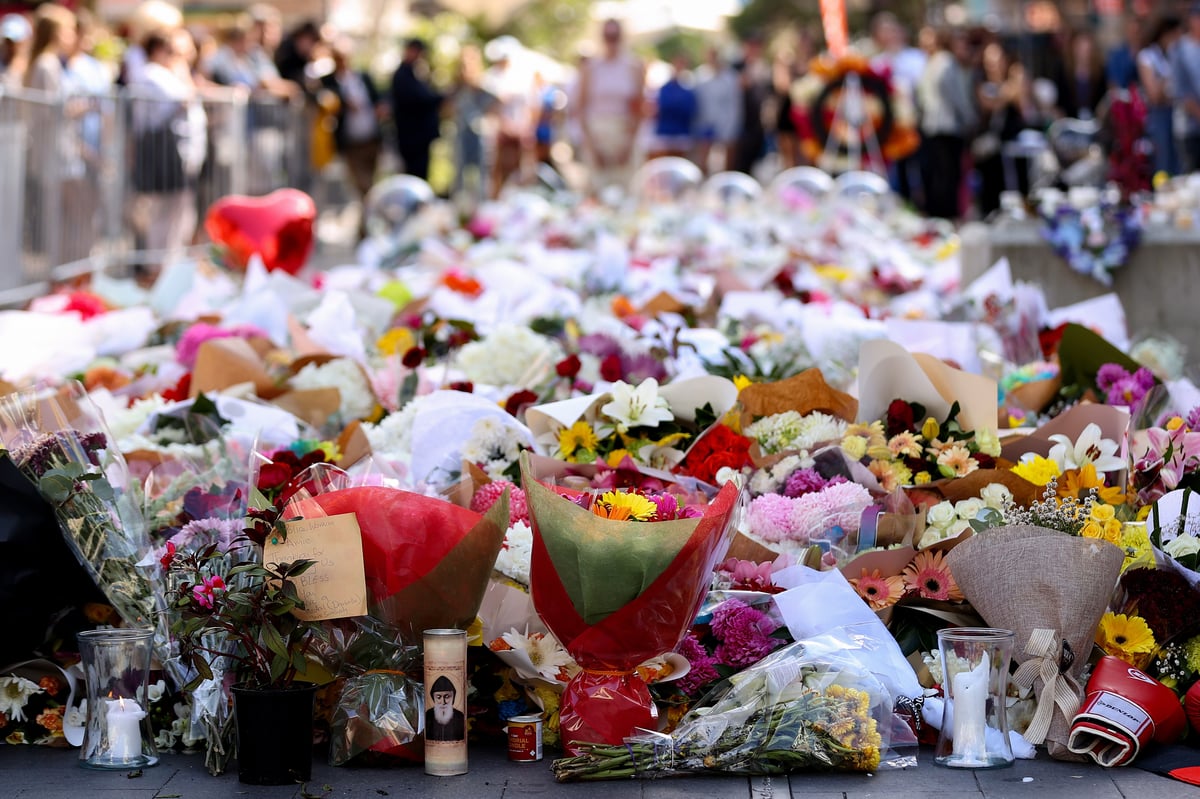
When Inspector Amy Scott clocked in for work on April 13, 2024, she thought it would be just another day.
She had no idea it would be one that changed Sydney's history forever.
Instead, Amy found herself running solo into Westfield Bondi Junction — straight into the chaos of one of the city's darkest days.
It was the day a man named Joel Cauchi went on a stabbing rampage, killing six people and injuring 10 more.
Amy was the first police officer on the scene. She had no idea what she was walking into.
"I actually felt nauseous as I ran in," she told the NSW Coroners Court this week. "Because in my head, I resigned myself to the fact I was probably going to die."
What she was met with was panic. Shoppers were streaming out of the complex, screaming for help.
"People started saying to me … 'He's killing people, you've got to help us, please get in there.'"
So she did. Alone.
 Police at the scene. Image: Getty.
Police at the scene. Image: Getty.






























































































